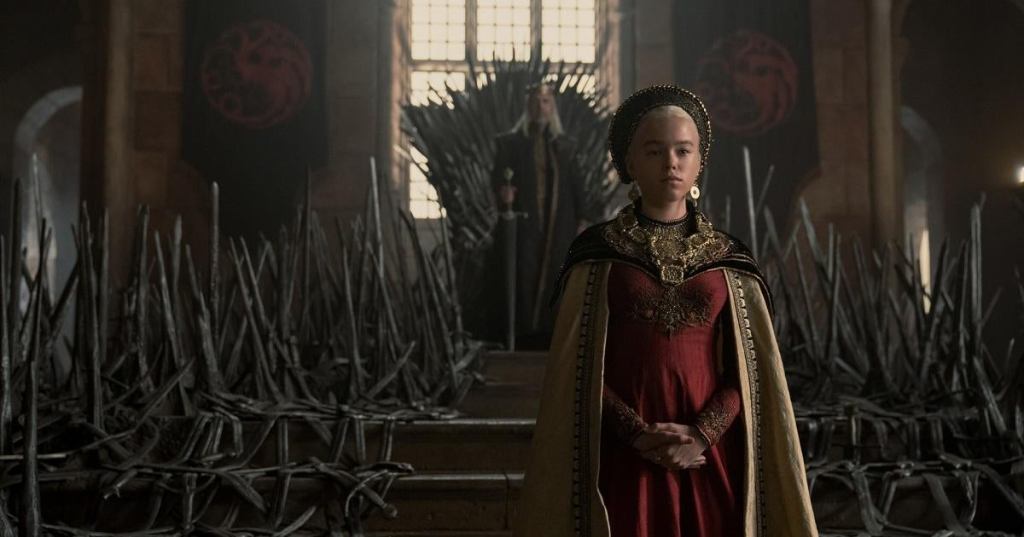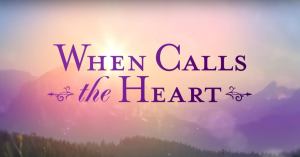It’s true. HBO’s Game of Thrones spinoff, House of the Dragon, succeeds in many ways that its predecessor failed. For an adaptation of a fantasy series whose claim to fame is its scope and breadth, it succeeds in the ways that really matter. Rather than striving to “subvert expectations,” it succeeds in the ways that fans care about most.
House of the Dragon should have trouble surprising fans – it returns to a familiar setting where fans have spent eight seasons and/or thousands of pages exploring, it’s a prequel so fans already know what is coming and, unlike its predecessor, it’s based on a completed work. That last point makes this show a victory for author George R.R. Martin in addition to the TV cast and crew. After an infamous bout of writer’s block, Martin may have cracked the code on the burgeoning genre of fantasy adaptations on TV, providing a blueprint for how others could expand a fictional universe.
Videos by PopCulture.com
For those unaware, House of the Dragon adapts about a third of Martin’s book Fire & Blood. Fire & Blood is not a novel but an “imaginary history book,” written in the voice of a Westerosi maester in the time of King Robert Baratheon. The book describes about 130 years’ worth of history captivatingly, but distantly. This allows the TV crew to zoom in on a few chapters and expand them into a few seasons of TV, fleshing out details and telling a fresh story without deviating from the original author’s vision.
The trust, respect and compatibility between Martin and writer Ryan J. Condal is very clear in House of the Dragon. TV-only fans will feel pulled right back into Westeros in all the ways they loved back in 2011, while book readers will not feel bored nor inundated with new information. The show takes the chassis that the book laid out and builds a car onto it — with a firebreathing engine to take viewers further than they dared hope.
Without spoiling the content of the show, it seems important to address the format it adopts in its first few episodes. House of the Dragon Season 1 needs to depict events spread across years, and we already knew that they had cast several actors to play the same characters at different ages to accomplish this. However, there are smaller time-jumps between episodes as well, so Milly Alcock’s Rhaenyra leaps ahead several years before maturing into Emma D’Arcy’s version of Rhaenyra.
The brilliance of this style only becomes clear as the season goes on. It pays homage to the book and imbues the whole story with a sense of gravity. You find yourself believing that these characters are very much alive and very much active even when the camera isn’t on them. You also find yourself furiously trying to calculate why each scene was worth depicting on screen rather than the innumerable moments that happen in between.
The time skips leave the actors with the difficult task of conveying years’ worth of rapport and information in each scene, yet they all pull this off stupendously. Alcock manages to show off an amazing range of talent while pulling the viewer along with her through the timeline. Paddy Considine’s portrayal of King Viserys I Targaryen is infuriatingly good, making you feel like you’ve spent years with the old monarch yourself. Rhys Ifans manages to channel Littlefinger and Varys from the original series while at the same time becoming frustratingly relatable as the story goes on.
Matt Smith is predictably a show-stealer as Prince Daemon Targaryen. He and the writers together added so much to a character that had already been built up extensively on the page, yet the end result is the same – Daemon is too self-contradictory to be categorized as a hero or a villain. Every single other person on screen deserves enormous praise as well, and it seems safe to assume that award season will be its own “dance of the dragons” in 2023.
While incredibly scripts, visual spectacles and heart-stopping performances are all important, the true genius of House of the Dragon is how it establishes its role within the growing A Song of Ice and Fire franchise. The show introduces new information, both subtle and obvious, that has implications for the original TV series, the novels and other stories that are to come. It’s not that you now need to watch House of the Dragon in order to truly appreciate A Feast for Crows, for example – it’s that every spark of new information here casts a shadow on the stories taking place across the map or across the timeline.
This enrichment and nuance is the reason why House of the Dragon is worth making, and it’s the perfect way to honor the incredible work that Martin has done in creating the world of Westeros. Martin has often said that some writers are “architects” building a story by a rigid plan while others, like him, are “gardeners,” planting seeds and cultivating whatever grows. House of the Dragon is a short saga in the history of the Seven Kingdoms, but those that care to will see how it enlivens Martin’s garden — even if we know that winter is coming.
House of the Dragon premieres on Sunday, Aug. 21 at 9 p.m. ET on HBO and HBO Max. Martin’s books, including Fire & Blood are available now in print, digital and audiobook formats.









